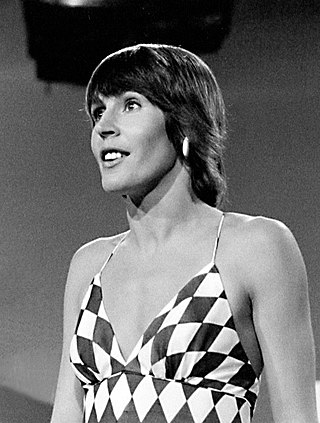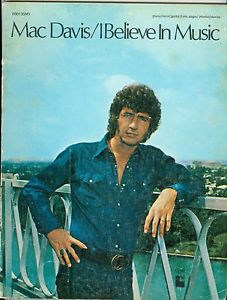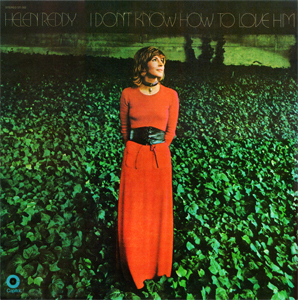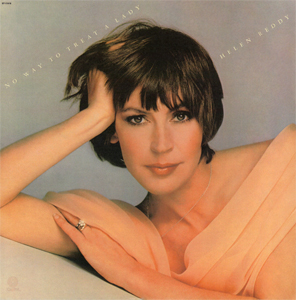
"Me and Bobby McGee" is a song written by American singer-songwriter Kris Kristofferson and originally performed by Roger Miller. Kristofferson and Miller are distant cousins in the Chenoweth surname family tree. Fred Foster shares the writing credit, as Kristofferson wrote the song based on a suggestion from Foster. A posthumously released version by Janis Joplin topped the U.S. singles chart in 1971, making the song the second posthumously released No. 1 single in U.S. chart history after "(Sittin' On) The Dock of the Bay" by Otis Redding. Gordon Lightfoot released a version that reached number 1 on the Canadian country charts in 1970. Jerry Lee Lewis released a version that was number 1 on the country charts in December 1971/January 1972 as the "B" side of "Would You Take Another Chance On Me." Billboard ranked Joplin's version as the No. 11 song for 1971.

"Since I Don't Have You" is a song written and composed by Jackie Taylor, James Beaumont, Janet Vogel, Joseph Rock, Joe Verscharen, Lennie Martin, and Wally Lester. It was first a 1958 hit single for the doo-wop group the Skyliners on the Billboard Hot 100. Country music singer Ronnie Milsap had a hit with the song in 1991. American hard rock band Guns N' Roses also had some success in 1994 with their version of the song which reached the top 10 on the UK Singles Chart.

"Hooked on a Feeling" is a 1968 pop song, written by Mark James and originally performed by B. J. Thomas. Thomas's version featured the sound of the electric sitar and reached No. 5 in 1969 on the Billboard Hot 100.

"Tell Me a Lie" is a song composed by Mickey Buckins and Barbara Wyrick. Originally recorded by Lynn Anderson for her 1974 What a Man My Man Is album, it was released later that same year as a single by Sami Jo Cole, who took it to number 21 on both of the major U.S. pop charts. It also charted in Canada (#17). Cole's version was also an Adult Contemporary hit, reaching number 14 in the U.S. and number 27 in Canada.

"Don't Pull Your Love" is a song written by Brian Potter and Dennis Lambert which became a top ten hit single in 1971 for Hamilton, Joe Frank & Reynolds.

"We'll Sing in the Sunshine" is a 1964 hit song written and recorded by Gale Garnett which reached No. 2 in Canada, and No. 4 on the U.S. Billboard Hot 100 chart for the week ending 17 October 1964. It also enjoyed success on easy listening and country music radio stations, spending seven weeks at No. 1 on the Billboard Easy Listening chart and No. 42 on the country chart. The Cash Box Top 100 ranked "We'll Sing in the Sunshine" at No. 1 for the week of 31 October 1964, and it also reached No. 1 in Garnett's native New Zealand that November. In Australia, "We'll Sing in the Sunshine" afforded Garnett a Top Ten hit with a No. 10 peak in October 1964. Garnett's sole Top 40 hit, "We'll Sing in the Sunshine" won the Grammy Award for Best Ethnic or Traditional Folk Recording in 1965.

The discography of American country artist Skeeter Davis contains 32 studio albums, 18 compilation albums, 59 singles, 53 lead singles, six collaborative singles, two other charted songs and two additional appearances. Davis was first one half of the duo, The Davis Sisters before embarking on a solo career with the RCA Victor label. Her second single was 1957's "Lost to a Geisha Girl", which reached the top 15 of the American Billboard Hot Country Songs chart. It was followed in 1959 by the top five country selection, "Set Him Free". The same year, Davis's debut studio album was issued on RCA Victor titled I'll Sing You a Song and Harmonize Too. Her career momentum continued to build in 1960 with two top five back-to-back singles: "(I Can't Help You) I'm Falling Too" and "My Last Date ". Both selections also climbed into the Billboard Hot 100 top 40. They were featured on Davis's second studio album called Here's the Answer. Between 1961 and 1962, Davis had top ten Billboard country singles with "Optimistic" and "Where I Ought to Be".

"Stop and Smell the Roses" is a 1974 song by the American singer-songwriter Mac Davis. The song was written by Davis and the noted bandleader and trumpeter Doc Severinsen.

"One Hell of a Woman" is a 1974 song by the American singer-songwriter Mac Davis. The song was written by Davis and Mark James.
"Danny's Song" is a song written by American singer-songwriter Kenny Loggins, as a gift for his brother Danny for the birth of his son, Colin. It first appeared on an album by Gator Creek and a year later on the album Sittin' In, the debut album by Loggins and Messina. The song is well remembered for both the Loggins and Messina original, as well as for Anne Murray's 1972 top-ten-charting cover.

"Watching Scotty Grow" is a song written by country music singer-songwriter Mac Davis and recorded by Bobby Goldsboro in 1970 on his album, We Gotta Start Lovin. Davis recorded his version on his 1971 album, I Believe in Music.

"Say You Love Me" is a song written by English singer-songwriter Christine McVie for Fleetwood Mac's 1975 self-titled album. The song peaked at No. 11 on the Billboard Hot 100 for three weeks, and remains one of the band's most recognizable songs. Its success helped the group's eponymous 1975 album sell over eight million copies worldwide.

Australian-American singer Helen Reddy (1941–2020), often referred to as the "Queen of 70s Pop", recorded 18 studio albums, seven of which have achieved sales of 500,000 units in the US for which they were awarded Gold certification by the Recording Industry Association of America. One of those seven, I Am Woman, eventually went Platinum by reaching sales of one million copies, and her first compilation album, Helen Reddy's Greatest Hits, was awarded Double Platinum status in 1992 for hitting the two million sales mark. The respective US and Canadian album charts in Billboard and RPM magazine each had appearances by 10 of these LPs during the 1970s.

"Daddy Don't You Walk So Fast" is a song written by Peter Callander and Geoff Stephens and performed by Wayne Newton. It appeared on Newton's 1972 album, Daddy Don't You Walk So Fast.

"Never Ending Song of Love" is a song written by Delaney Bramlett, and, according to some sources, by his wife Bonnie Bramlett. It was originally recorded with their band, Delaney & Bonnie & Friends, in 1971 on the album Motel Shot. Released as a single by Atco Records the same year, "Never Ending Song of Love" became Delaney & Bonnie's greatest hit on the pop charts, reaching a peak of No. 13 on the Billboard Hot 100 and No. 8 on Easy Listening. It reached No. 16 in Australia.

"I Believe in Music" is a 1970 song written and recorded by Mac Davis and later included on his second album I Believe in Music. Gallery covered it in 1972 as the second of three singles off their Nice to Be with You album and the follow-up release to their title track.

I Don't Know How to Love Him is the debut studio album by Australian-American pop singer Helen Reddy, released on May 10, 1971, by Capitol Records. I Don't Know How to Love Him included her first recording of "I Am Woman". The album made its first appearance on Billboard magazine's Top LP's chart in the issue dated June 5, 1971, and remained there for 37 weeks, peaking at number 100, and got as high as number 40 on the album chart in Canada's RPM magazine. On November 27, 1974, the album received Gold certification from the Recording Industry Association of America, and on March 29, 2005, it was released for the first time on compact disc as one of two albums on one CD, the other album being Reddy's eponymous follow-up that originally came out in the fall of 1971.

No Way to Treat a Lady is the seventh studio album by Australian-American pop singer Helen Reddy that was released in the summer of 1975 by Capitol Records and found Reddy tackling country pop, bossa nova and blues. The album debuted on Billboard's Top LP's & Tapes chart in the issue dated July 12, 1975, and peaked at number 11 over the course of 34 weeks, and on the album chart in Canada's RPM magazine it got as high as number 13. On January 19, 1976, the Recording Industry Association of America awarded the album with Gold certification for sales of 500,000 copies in the United States, and on August 23, 2005, it was released for the first time on compact disc as one of two albums on one CD, the other album being her 1976 release, Music, Music.

Ear Candy is the ninth studio album by Australian-American pop singer Helen Reddy, released on 25 April 1977 by Capitol Records. The album included a modern take on the doo-wop genre, a Cajun number that gave the Melbourne native her first and only appearance on Billboard magazine's Country chart, and a dark self-parody on which Reddy proclaims: "I don't take no shit from nobody". Unusually, half of the songs recorded for Ear Candy were co-written by Reddy herself, including the second single: "The Happy Girls", Reddy's first self-penned A-side single since "I am Woman". The album's first single, a remake of the 1964 Cilla Black hit "You're My World", gave Reddy a final Top 40 hit.

"Rock and Roll (I Gave You the Best Years of My Life)" is a 1973 song written and originally performed by Australian singer Kevin Johnson, most famously covered by American singer Mac Davis.



















